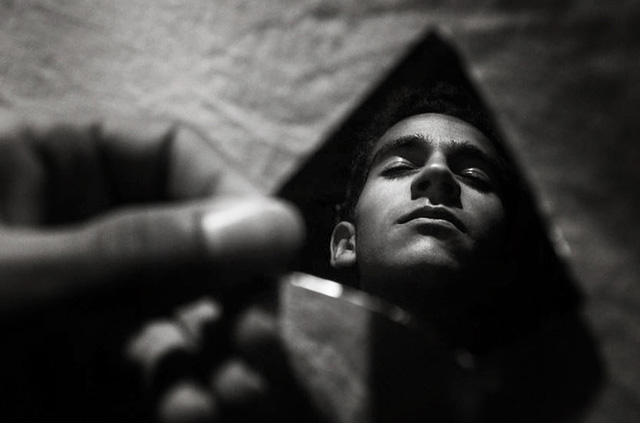
The ice was melting fast in the string bag holding my six-pack of beer that I used as my makeshift cooler.
The sun was hot that afternoon on the beach in Marco Island, Florida, as I relaxed with a dozen industry friends after a morning of convention meetings. I kept the bag tucked under my beach chair in its shadow to keep my precious cargo as cold as I could, even though I wouldn’t have hesitated to drink warm beer.
I was as loud as my friends and I soaked in the sun. I tried too hard to be funny, and a sense of invincibility slowly washed over me as I drank fast to finish my beers before the ice lost its battle.
I knew I drank too much. I even joked about it that afternoon calling myself an alcoholic, as though it was a badge of honor and not the deadliest of chronic diseases. I knew my drinking was excessive, but I also knew a lot of other people who hit it hard and seemed to be just fine. It felt like I was walking a thin line that separated normal from calamity, occasionally stepping over, going too far, and experiencing massive bouts of shame and regret as a result.
“I know I have a drinking problem. They say admitting it is the first step, and I like to take things one step at a time,” I said as I cracked open another beer. My friends laughed at my admission, further strengthening my resolve to continue to serve as the life of the party, generous giver of chuckles, and master of intoxicating ceremonies. It seemed to be my destiny. I would just have to try harder to control my consumption and keep from crossing that line. And keep the depression and anxiety at bay.
As the afternoon progressed, I got louder and less aware of my surroundings. After I dropped about my third f-bomb, the father sitting in front of us on the crowded beach with his family turned around and asked me to watch my mouth. I nodded and apologized, but in my booze-soaked brain, I thought he was the asshole.
And that’s the battle that raged for years in my mind. There was enough upside to drinking—the afternoons in the sun with no responsibility and friends with whom to share my stunted and immature sense of humor—to make me question if I would ever do anything about the chronic condition that was destroying me from the inside out. The paralyzing despair, the arguments with my wife, and the shame that lingered long after the nights when I would overdo it, I felt reluctantly required to endure the aftermath in order to keep my drinking life on track.
In my increasingly frequent moments of honesty, I scoured the internet for answers. There was no shortage of alcoholism self-diagnosis surveys asking questions like, “Do you find you have to drink more to reach the same level of buzz you easily achieved in the past?” or, “When preparing for a trip, is the availability of alcohol a major deciding factor in your travel plans?” Yes and yes. Resounding yeses. Obviously. And if answering questions like those in the affirmative was an indication of alcoholism, almost everyone I knew was in my same unavoidable situation.
Those online surveys inevitably included questions about end-stage alcoholism, too. “Do you wake in the middle of the night and need to drink alcohol to get back to sleep?” or, “Do you experience hallucinations as a result of your drinking?” I gave questions like that an emphatic, hell no! I didn’t see those questions as indicators of the road ahead as my disease of addiction progressed. I saw them as proof that I wasn’t an alcoholic because I could never dream of having such experiences.
I responded to those online surveys with enough yes answers to fill me with doubt, but also enough no answers to make taking corrective action seem unnecessary. I knew I wasn’t okay, but I considered drastic and life-shattering action like sobriety excessive and inhumane.
I wasn’t an alcoholic, I thought. Alcoholics lived in the gutter, pissed themselves, and beat their wives. I had a job, a bank account, a house, a loving family, and a charming wife. I drank more than some people, and less than others. My exuberance for alcohol made life a party. Sure, it carried with it some unnecessary burdens of bluntness and anger that required me to apologize to friends, family, and especially my wife. It was a yin and yang. There were pros and cons. The blessings alcohol delivered came along with some collateral damage.
“Once you start drinking, is it difficult or impossible to stop? Do you usually drink more than one or two when you start a drinking session? Do you top off your glass or sneak drinks when no one is looking?” the questions continued. Yes, yes, and yes. But also, “Has alcohol caused you major legal issues, destroyed relationships, or resulted in financial collapse?” No, no, and no.
Is it any wonder why we associate alcoholism with crash-and-burn rock-bottom disasters? Alcoholism carries a societal stigma unlike any other, and our own best efforts to help people identify their problem is a major part of the reason. I might be bad, but I’m not that bad, I thought on many occasions. I need to try harder, be more mindful, have a solid plan before a night of drinking begins. I thought myself a pretty smart guy. Now I know alcohol only adds to the inflation of ego. I can beat this. I can control my drinking! I believed those thoughts. Even as I learned of the progressive nature of the disease of alcoholism, I thought I was better than everyone else. I thought I could beat that which kills three million people a year worldwide.
The debate in my head raged on. I drank with friends and my jokes got lots of laughs. Then my intoxication turned the most minor of conflicts into all-night arguments with my wife resulting in days of depression and anxiety. The swings were drastic and dramatic. No matter how hard I tried, no matter how smart I thought myself to be, my situation continued to deteriorate.
That’s how a progressive disease works, you see. Once you cross the invisible line that separates heavy drinking from addiction, there is no going back. Control is a wistfully impossible dream. The only question that matters is, when will the nos on the end-stage part of the alcoholism surveys turn to yeses?
The peace that I’ve found in permanent sobriety was not available to me as long as I continued to look for it 15, 20, or 30 questions at a time in online surveys. The peace that I ultimately gained required only that I answer honestly these two questions:
“Do you think about alcohol when you are not drinking (either regret from your last drink or anticipation of your next drink)?
And, is alcohol causing problems in your life (small problems or large ones)?
There was no debate about the answers to those two questions.
I thought about alcohol all the time. At the beginning of the week, especially after an excessive weekend, I would berate myself for my overconsumption, and consider the relief that was available if I drank a little more. Toward the end of the week, I was fixated on my weekend plans. It didn’t matter if we had anything fun on the calendar or not. I looked very much forward to the soothing relief of drinking alone.
As for alcohol causing problems in my life, I worked hard to assign the blame elsewhere. My wife’s short temper and intolerance for my chosen method of relaxation were surely to blame for our marital challenges. But deflecting offered incomplete analysis, and in my moments of honesty, I knew my drinking was causing each and every single one of the problems in my life. I expended significant effort to deny the undeniable—but the truth stared right back at me.
I did think about alcohol when I wasn’t drinking. Unless I was concentrating on something specific, I was always thinking about alcohol. And alcohol did cause both small and large problems in my life. It caused all the problems in my life, and no amount of upside could camouflage the turmoil.
Admitting you have a problem is the first step. I think people who have never battled addiction underestimate the daunting task of taking that first step and releasing control of the uncontrollable. Admitting a problem with alcohol was, for me, spending my whole life deeply believing in the pristine sanctity of alcohol as the elixir for joy, mourning, relaxation, and celebration, only to learn my whole life was a lie. It is both as simple and as diabolically complex as admitting I had a problem.
And that admission was impossible for me, except when telling a joke on a sandy beach, until I asked the right questions to make the determination. Did I think about alcohol all the time, and was it the source of my problems? Only when I understood those were the questions, did my answers lead me to freedom.
~
If you’d like to learn how I navigated the enormous challenges of early recovery, please download my free Guide to Early Sobriety.











Read 10 comments and reply